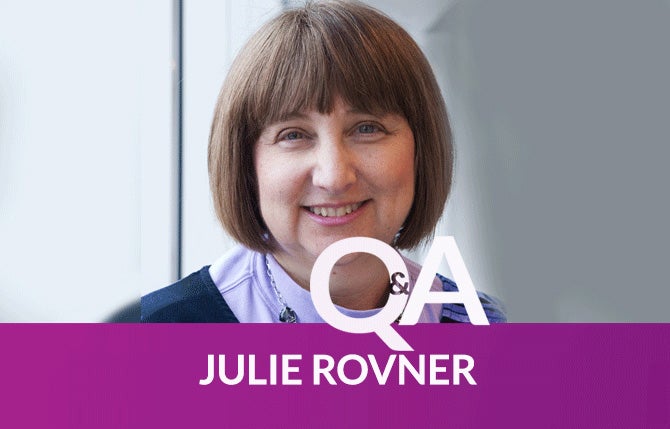Christina Agapakis is the creative director at Ginkgo Bioworks, a biological design company growing cultured products for partners across many industries. Agapakis will speak as part of The Genetics Revolution track at the Aspen Ideas Festival. She agreed to answer a few questions about modifying DNA, medical ethics, GMO foods, and more.
What’s synthetic biology, and how is Ginkgo Bioworks using it to create consumer products?
Synthetic biologists build things with biology. At Ginkgo, we write DNA and design microbes that can do lots of different things. Biology is the most powerful technology on the planet—it grows itself, heals itself, and does it all at incredible scales in a sustainable way. We hope to learn to design with biology and bring that power to human technology.
Workers at Gingko Bioworks mix and modify DNA. Can you give an example of the end result of such a process?
Today, a lot of our work is centered on designing microbes so that they can produce useful things during the process of fermentation—ingredients for medicines or enzymes, or ingredients that can go into flavors and fragrances, nutritional products and vitamins, or cosmetics. Ginkgo’s organism engineers design pathways of genes that can convert sugar into these useful compounds inside yeast cells while they are fermenting in a brewery.
In the future we see microbes playing a bigger role in a lot of different technologies, from engineered probiotics that can diagnose and treat disease to microbes that can clean up waste and aid in recycling.
When it comes to ethics, what sorts of questions come up at Ginkgo Bioworks? Is there a sensitivity to subverting nature to design genes?
Deeply considering ethics and values is fundamental to the development of any new technology. We think a lot about questions regarding transparency as well as intellectual property, how products will be manufactured, and how they will be used in the real world. For more on transparency, please read this opinion piece from Ginkgo Bioworks co-founder Jason Kelly.
Above all, our values are grounded in respect for biology and its power. Evolution has a four billion-year head start on us—we have to work with humility to learn to design with biology.
What’s one of the biggest hurdles facing the growing synthetic biology market?
Some of the biggest hurdles come from misunderstandings about genetic engineering and biotechnology. First, there is a misperception that biotechnology is only useful in the pharmaceutical industry and that biology won’t have a place in other kinds of manufacturing, closing off some of the potential for creativity in new applications and opportunities.
Second, there is widespread fear surrounding GMOs. What I’m particularly worried about is the fear that scientists and companies have about consumers rejecting GMOs (sociologist of science Claire Marris calls this “synthetic biology phobia-phobia”), leading many scientists and companies to reject calls for transparency and labeling and ultimately fostering a vicious and unproductive feedback loop of fear on both sides.
Can food that’s been bioengineered be harmful to eat?
Respecting the power of biology means recognizing that there are potential dangers and working very hard to ensure that products are safe. Biological engineers involved at every level of the design process work to monitor and maintain safety. So the answer to your question is yes—all food can be dangerous due to how it is grown and prepared, and that is true at the genetic level as well. But also no—foods that have gone through such development and regulatory processes are safe to eat.
This post originally appeared on the Aspen Ideas Festival site.


